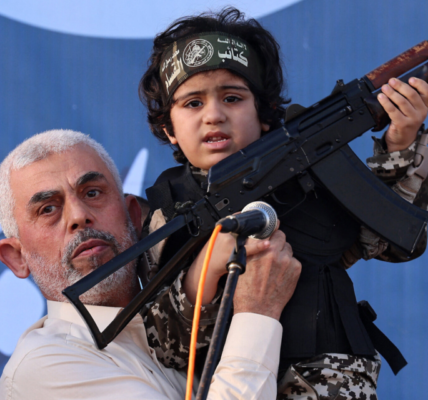UN Security Council Holds Landmark Meeting Focused Solely on Hostages Held by Hamas Terrorists

In a historic and emotionally charged session, the UN Security Council convened its first ever meeting solely focused on the hostages taken by Hamas terrorists during their attack on Israel on 07 October.
The meeting, initiated by the United States, brought together diplomats, survivors, and families of the captives to highlight the human toll of these abductions and call for the hostages’ immediate release.
Shoshan Haran, who was taken hostage along with her daughter and two grandchildren, provided a harrowing account of the psychological impact on her three-year-old granddaughter. “Three weeks after we were released, Yahel only whispers, too afraid to make a noise. She hid from everyone, too afraid to go outside. She wet her bed and had nightmares, too afraid she may be captured again,” Haran told the Council.
The 07 October assault by Hamas militants resulted in the death of approximately 1,200 people, mostly civilians, and the kidnapping of 252 individuals. The US-led session condemned these abductions as a “psychological tool of terrorism” and emphasised the need for international action against such tactics.
Ayelet Samerano, whose son was killed, and his body taken by Hamas, and Gili Roman, whose sister was taken hostage and later released, also spoke at the meeting. Their stories echoed Haran’s plea against normalising mass hostage-taking.
The UN Security Council has passed three resolutions demanding the immediate and unconditional release of all hostages. US Ambassador Linda Thomas-Greenfield reiterated this call, emphasising the moral and humanitarian imperative of freeing the captives. “Taking hostages is cowardly — a cowardly tactic designed to instill fear, manipulate governments, and advance nefarious agendas. It violates basic principles of humanity,” she stated. Thomas-Greenfield stressed the commitment of President Joe Biden to this cause, urging Hamas to release all remaining hostages to save lives on all sides.
The meeting saw unanimous condemnation of hostage-taking by all 15 council members and additional speakers. However, it also highlighted the geopolitical complexities surrounding the issue. While South Korea’s deputy ambassador Sangjin Kim was visibly moved when discussing hostage Hersh Goldberg-Polin, other nations like Russia, China, and Algeria used the meeting to criticise Israel’s military response in Gaza condemning the high civilian toll in Gaza, with the Hamas-run health ministry reporting over 35,000 deaths, despite several reports coming to light that these numbers are inaccurate and remain unverified.
“The miraculous resurrection of the dead in Gaza. The UN had reduced its estimate of women and children killed in Gaza by 50% and claims that it relied on data from the Hamas Ministry of Health,” Mr Katz wrote in a post on X on Monday.
“Anyone who relies on fake data from a terrorist organisation in order to promote blood libels against Israel is antisemitic and supports terrorism. @antonioguterres, resign!”
Israeli UN Ambassador Gilad Erdan emphasised the urgency of the hostage crisis, noting that the 132 individuals taken on 07 October are still in captivity. He criticised the international community’s inaction, questioning the absence of measures such as sanctions on Hamas leaders. “The hostages are the most urgent and critical humanitarian issue that the council must focus on,” Erdan asserted. He called out the council’s lack of decisive action, describing the situation as “heartbreaking and amoral”.
“Our hostages are enduring beatings, torture, and rape,” he said.
The powerful testimonies and voices of those directly affected by the 07 October Hamas attack serve as a stark reminder of the urgent humanitarian crisis faced by hostages and their families.
“We cannot allow the normalisation of this unprecedented form of terrorism — mass hostage-taking of unarmed civilians, women, children, elderly,” said Haran, now 68, founder of farming and food security charity Fair Planet.
“What you see as our problem today might become a worldwide problem to each and every country in the near future,” she said.
































































































































































































































































































